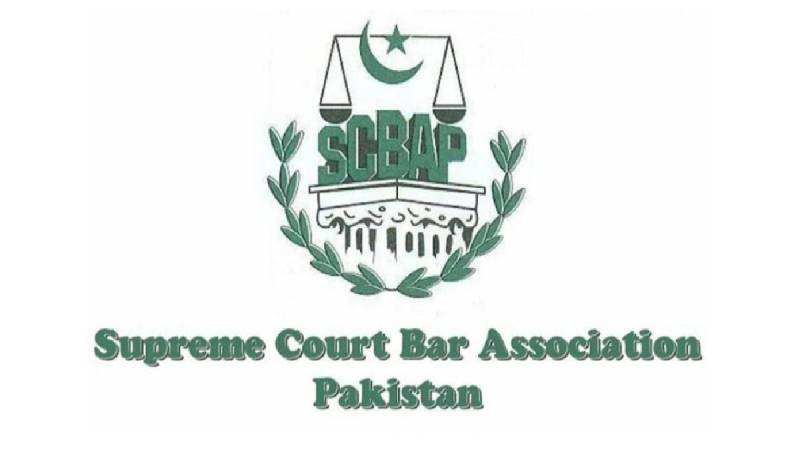
The Supreme Court Bar Association of Pakistan (SCBAP) has demanded that the Supreme Court reconsider paragraph 42 of its order, which permits members of the Ahmadiyya Community/Qadianis to profess or preach their religion within their designated places of worship.
"The recent judgment announced by the Supreme Court of Pakistan in Criminal Review Petition No. 2/2024, titled 'The State through Prosecutor General Punjab vs. Mubarak Ahmed Sani and Others,' wherein, although the court, in paragraph 42 has rightly concluded that neither the Ahmedis/Qadianis are allowed to directly or indirectly pose themselves as Muslims nor can they preach or propagate Islamic principles, in any visible representations whatsoever, however, SCBAP views that the latter part of the said paragraph 42, which permits Ahmedis/Qadianis to profess or preach within their places of worship or Jamat Khanas, should be reconsidered and they must not be allowed to profess or preach in any manner even within their houses, community centres or in places of worship or Jamat Khanas," stated a statement issued by the SCBAP on Sunday.
The statement was issued on behalf of SCBAP's President Shahzad Shaukat, Executive Committee Secretary Syed Ali Imran, and others.
The association, however, followed up by claiming it stands for the enforcement of constitutional rights, the rule of law, the independence of the judiciary, the protection of human rights, and, most importantly, the promotion of religious tolerance and harmony.
It added that as the apex bar association of the country, SCBAP holds the Constitution of paramount importance. "Our Constitution is based on the principles and guidelines of Islam, and our judiciary and courts must operate within the parameters of framework given by our religion Islam."
"It is imperative to mention that the foremost and foundational principle of our sacred religion is the sovereignty of the entire universe belonging to Almighty Allah, and Hazrat Muhammad (PBUH) is undoubtedly the last Prophet of Allah."
They added, "Ahmadis, or Qadianis, have, for centuries, engaged in wrongful and malicious interpretations of Islamic principles, the Quran, and the Sunnah, falsely presenting themselves as Muslims."
"Therefore, Sections 295-B and 298-B of the Pakistan Penal Code (PPC) are applicable to them, even within the premises of their places of worship," they argued.
"As such, they must not be permitted to profess or preach openly, inside their houses or otherwise, as their actions directly desecrate the teachings of Prophet Muhammad (PBUH), Islam, the Quran, and the Sunnah."
They should be unequivocally declared as "Apostates", the press statement asserted.
"The SCBAP asserts that this part of paragraph 42 of the aforementioned judgment contradicts Islamic principles, the Holy Quran, and Sunnah."
They called upon the top court to review and withdraw paragraph 42 of the judgment in appropriate proceedings.
However, the SCBAP backed the judges of the top court in issuing the verdict over the campaign launched against them.
"At this stage, SCBAP would also like to reiterate that although accepting or rejecting any petition is solely at the discretion of the courts, it is clarified that while judgments by superior courts may contain discrepancies, these should not be used to disparage judges."
The SCBAP offered that highlighting any discrepancy should solely be to identify inadvertent mistakes and facilitate course correction.
"The SCBAP views the situation emerging from the recent judgment of Supreme Court in Crl. Review Petition No.02 of 2024 with grave concern," it said, adding, "The open and blatant threats hurled upon the bench are extremely condemnable and constitute a violation of the concept of independence of judiciary."
"SCBAP remains committed to ensuring that justice prevails in accordance with the principles of Islam and the Constitution of Pakistan."

